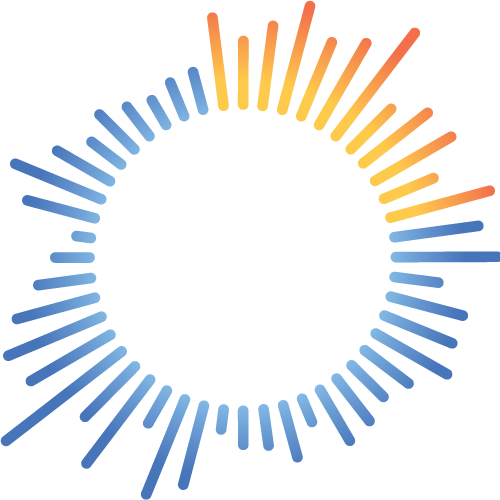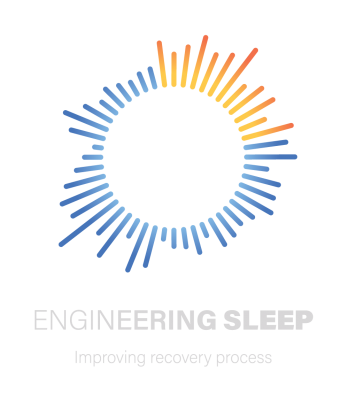While it’s not news to the scientific community that many animals – including human beings – have an internal, genetic circadian rhythm, mainstream society has not yet become fully aware of the variation in human circadian rhythm and just how important it really is.
In 1935, two German zoologists, Hans Kalmus and Erwin Bünning, discovered circadian rhythms in fruit flies. The International Committee on Nomenclature of the International Society for Chronobiology officially adopted the 24-hour definition of circadian rhythms in 1977. To fall under the definition of a circadian rhythm, a biological rhythm must exist for 24 hours even without external stimuli such as light.
We now know that encoded in our cells are “clock genes” – genes that regulate our circadian system. These genes affect not just our sleep patterns but also cognitive functioning, hormone levels, body temperature, and metabolic functions.
So far, 22 genetic variants have been found to be linked to chronotype, strengthening the hypotheses that it is heritable. For example, people who have a long PER3 gene are early risers who need at least 7 hours of sleep, while people with a short PER3 gene tend to wake up late and need less sleep to get by. One twin study from 1997 found that “54% of morning-evening variance was due to genetic variability”.
There is a common assumption that humans are purely diurnal – active during the day, asleep during the dark of the night. And yet we now know that there is a normal variation, where one’s cycle is a few hours earlier or later. A big variation, though, is the other extreme – someone who is completely nocturnal. Most people aren’t completely nocturnal or diurnal but fall somewhere in between the two extremes on a bell curve. This tendency for “morningness” or “eveningness” is known as your chronotype.
Being on the nocturnal end of the bell curve in a mostly diurnal world can cause major disruptions in the day-to-day functioning of someone’s life. Someone whose body tends to want sleep during the day and be alert during the night will struggle to wake up for school, sleep, and other activities such as bank appointments and medical check-ups – all of which are usually during the day. Common advice can often fail. For example, people who struggle to wake up in the morning are often told to go to sleep earlier and wake up even earlier to make sure they have time to do things before going off to work – and yet this might be the opposite of what their body needs. In fact, trying to force their body to concentrate during the “wrong” hours can backfire.
Because these disruptions can be so encompassing, your chronotype has a major influence on your life. Being an “evening person” in a “morning” world isn’t just a hassle. It can have consequences on your social life, financial prospects, and even your physical and mental health. The personalized medicine movement includes studies on chronotherapy – the consideration of one’s personal chronotype in the administration of medicine and other therapeutic interventions. A study on bipolar patients found that “chronotherapeutics has now been proven to be a powerful clinical instrument for the treatment of depression in everyday clinical practice.”
Living in contrast to your natural rhythm can create long-term sleep deprivation. Waking up early doesn’t come naturally to those with “evening” or “night” chronotype, leading to “snooze abuse” – constantly hitting the snooze button and disrupting sleep. A promise might be made to go to sleep early to catch up on sleep, but the natural tendency to stay up – combined with the insomnia of going against the body’s natural rhythm – co-conspire together. As the cycle continues, sleep deprivation builds up. Memory starts being impaired and you become more prone to accidents. Your immune system becomes compromised and you become more susceptible to disease, as well as high blood pressure. Since you’re so tired, you might make more mistakes at work. The likelihood that you will have enough energy to exercise or meet up with friends after work goes down. Sleep deprivation and disrupted sleep biorhythm are correlated with weight gain.
While most of the focus is on “night owls” in a morning-focused world, the same applies to someone who is on the other end of the curve. An extreme morning person (one who wakes up and goes to sleep several hours earlier than the majority) who tries to work nights or stay up late will struggle just as much. Even when they try to sleep in, morning types will still wake up not long after their body tells them too. This, of course, leads to the same sleep deprivation problems that evening people experience when they try to live as morning people.
On the other hand, living in accordance with your natural biorhythm can help you make better decisions, sleep better, and perform better. Your chronotype doesn’t just determine whether you prefer to sleep in late or wake up early. It also affects things like how many hours of sleep you need. Chronotype has also been linked to personality traits such as conscientiousness, creative thinking, and even emotional stability.
An important thing to note is that hybrid types exist, and your chronotype can change as you get older. Infants and young children are usually morning types. People typically become evening types in their teenage years but balance out as they get older. However, for those who are genetically evening people, this tendency doesn’t go away or goes away quite late – for many men, the change happens over the age of 40. They will struggle to adjust if their job starts very early and doesn’t allow for flexibility.
Obviously, your chronotype has a big influence on your life. So how can you find out what your chronotype is?
- One of the biggest signs that you’re living in opposition to your natural cycle is if you find yourself constantly having problems waking up in the morning and falling asleep at night, and this can’t be explained by other reasons such as anxiety, bad sleep hygiene, or changing shift work. A reliance on coffee or other stimulants is another good hint.
- You can take a week to measure your energy levels during the day to see which type you fall under.
- You can also take your temperature throughout the day, as peak performance is correlated with peak temperature. Morning people have an earlier peak body temperature than evening people. Moderate morning people and moderate evening people have a peak body temperature that falls between that of morning and evening people.
If you want to know for certain what your chronotype is, the best way would be to go to a sleep lab and consult a specialist. Over the years a lot of research has been done on sleep cycles and official assessments of chronotypes have been made, including the Circadian Type Inventory from 1987. The CTI was developed to identify people who can adapt to shift work by assessing their ability to overcome drowsiness and the rigidity of their sleeping habits. In 1999, the Lark-Owl Chronotype Indicator was developed. The Munich Chronotype Questionnaire came in 2003.
If you’d rather not see a sleep specialist, or can’t, you can get access to Horne & Östberg morningness-eveningness questionnaire through ScienceDirect. You can also take an automated Morningness-Eveningness Questionnaire for free. There are also unofficial free chronotype tests that can help you figure out your chronotype, such as http://chronoquiz.com/ or https://thepowerofwhenquiz.com/. These tests use a classification devised by Dr. Michael J. Breus, a clinical psychologist specializing in sleep disorders. Dr. Breus identified four different types of chronotypes which he calls Bear, Wolf, Dolphin, and Lion. Others divide the population into Larks (morning people) and Owls (evening/night people).
Around 50% of the population — and around 70% aged of people ages 20 to 50 — are intermediate or moderate morning types. These are the people who seem to get up with the sun and wind down with the sunset. Moderate morning types usually don’t have too many sleep problems. People who fall into this category have steady energy, usually prefer to get most of their work done in the morning, and need to recharge a bit around midday (which can explain the “post-lunch dip”). As the day winds down, so does their mood and energy.
Then there are the moderate evening people. These are typically light sleepers who often have difficulty falling asleep and wake up easily (so they often end up not getting enough sleep). Moderate evening people usually do their best work from mid-morning to late afternoon, as it may take them several hours to really feel awake.
Evening people are those we commonly refer to as “night owls” – those who go to sleep late and wake up late. They tend to have two productivity peaks: one from noon until two PM and the other at night. They’re often introverts who crave alone time and who have creativity bursts during the night. Evening people are often artists or coders who can stay up late as they finish up a project. Eveningness has been correlated with rebellious, risk-taking behavior as well as some studies finding a correlation with high intelligence.
Last but not least are the morning people. These are the people who wake up super early – often in the early AM, when the evening types are just drifting off to sleep. They usually aren’t able to sleep in even when they have stayed up late the previous night. Morning people are often in constant motion or leaders who tend to go to sleep early. A correlation between morning types and neuroticism has been found.
More Posts

Welcome to Engineering Sleep blog.
Hello and welcome. I wanted to start the story of this blog with a personal one. When I was 18 years old, living in France,

About Chronotypes
While it’s not news to the scientific community that many animals – including human beings – have an internal, genetic circadian rhythm, mainstream society has

Performance and chronotype
How can you structure your day according to your chronotype to improve your performance? The first step is to make sure you know which

1 billion people are suffering from the most dangerous sleep disorder: Sleep Apnea.
What is Sleep Apnea? Sleep Apnea is when you stop breathing during sleep and your brain wakes you up to protect yourself. Sometimes, these temporary




